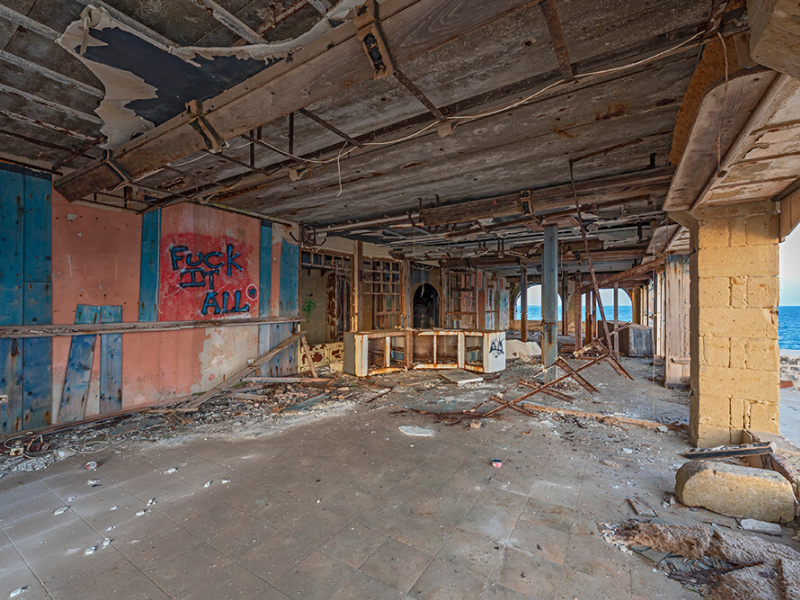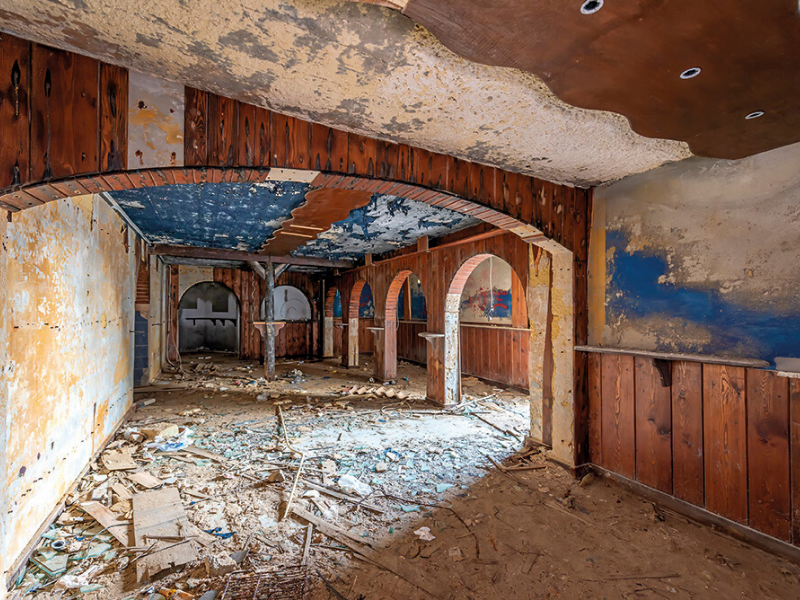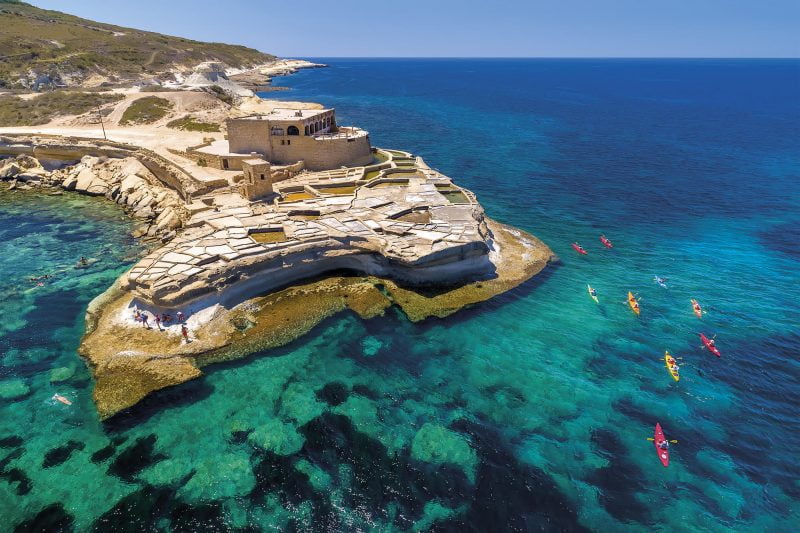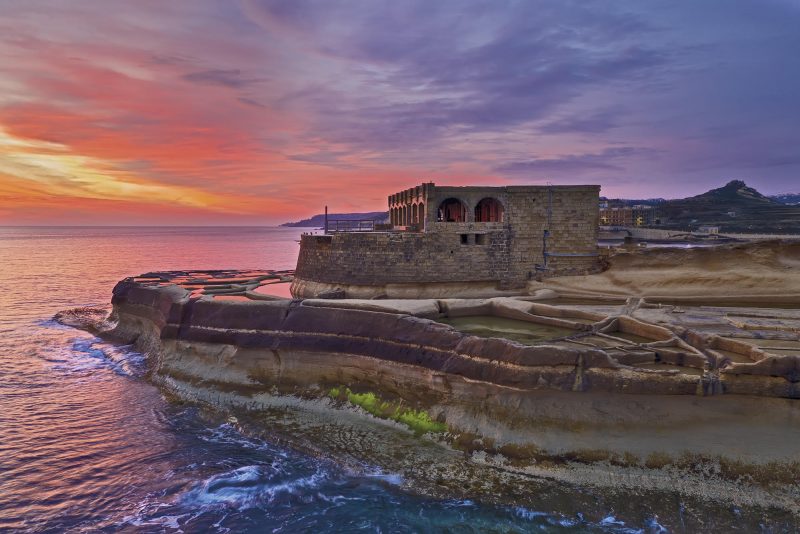After almost 20 years of indecision by the government and years of legal battles over a unique fortification from the Knights’ era in Gozo, there are finally signs of a possible breakthrough that the Qolla l-Bajda battery in Qbajjar can be returned to the public and restored to its former glory.
The Shift is informed that Din l-Art Helwa (DLH) has been approached by the Culture Ministry to prepare a brief on the restoration and use of the 18th century battery which, in 1978, was given on emphyteusis to a Gozitan businessman who turned it into a club.
DLH officials have already held informal talks to take over of the battery with the government promising a final decision in the coming weeks, sources have confirmed.
DLH and various other NGOs have been asking the government for guardianship of this iconic 1715 battery, one of only two remaining in Gozo, for almost two decades.

The heritage site in Gozo is in ruin. Photo: Daniel Cilia
Yet George Said, a well-connected Gozitan businessman known as ‘Id-Diaz’ who also owns La Grotta club in Xlendi Valley, has been reluctant to let go of the privilege despite the battery’s state.
Years of legal action to stall the process and government’s lack of action have led to the battery’s complete abandonment since 2003 and the structure’s decay into ruin due to the lack of restoration and vandalism.
Obstacles to return the battery to the public
Erected by the Knights of Malta in 1715 as one of several coastal fortifications around the Maltese islands, the fortification was leased out by the Labour government in 1978 to Said.
How ‘Id-Diaz’ got hold of this gem is unclear as the lease granted on a temporary emphyteusis basis was a direct order.
Through Rook Ltd – a company Said opened together with Saviour Cremona (the co-owner of the Ta’ Cenc Hotel) – the place was turned into a club called Rook that was very popular in the 80s.
Illegal structural changes were made inside the fortification to cater for the clubbing scene, which continued to ruin the battery. In 1999, the Planning Authority issued an enforcement order but nothing has happened since then.

The area that was used as a bar in the venue. Photo: Daniel Cilia.
Though the lease of the battery came to an end in 2003, according to the original contract, Said still wanted to keep the place and refused to let go of it despite an eviction order issued by the Lands Department.
This led to the PN government launching legal procedures in court for the re-possession of public property. Yet, through various legal manoeuvres by Said, the case got stuck in court.
On 7 September 2007, the government informed DLH in a letter that it would evict Rook Ltd and hand over the battery to the NGO. Said went to court seeking a precautionary injunction against the eviction on the basis of lack of fair hearing.
Judge Lino Farrugia Sacco had granted the injunction partly on the rationale that Said’s lawyers had announced that they would be filing a constitutional lawsuit.

An aerial shot of the Qbajjar battery. Photo: Daniel Cilia.
Judge Lorraine Schembri Orland took over the case after Farrugia Sacco’s retirement in 2014, and the parties announced that they were negotiating an out-of-court settlement. The details of this remain unclear despite various questions by MPs in parliament and from the press.
Following the return of Labour to power in 2013, persistent rumours in Gozo suggested that ‘Id-Diaz’ wanted ‘his’ battery back and was determined to convince the government to drop the legal challenge and reach a new lease agreement.
Some four years ago the parties declared the case was being abandoned.
In July 2020, The Shift had approached ‘Id-Diaz’ for comment. He had said: “I don’t know what’s going on at the moment”.
Meanwhile, the fortification has been left in its abandoned state, despite repeated pleas by NGOs that the government’s indecision was risking the fortification’s total collapse.
Featured photo credit: Daniel Cilia.













Kulhadd japprofitta ruhu kemm jiflah – l-ezempju car li f’Malta/Ghawdex il-flus BISS huma ta’ valur. Dan tistennieh wara li kellna muvument korrott immexxi minn ex.pm maghrufa bhala l’akbar korrot li qatt rat Malta – stennejna ahjar wara li seraq il-poter bl-ghajta ta Malta taghna lkoll. Qarraqtu bil-polplu gifa li emminkhom. Shame on you.